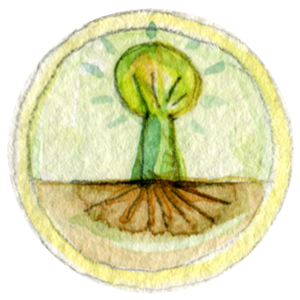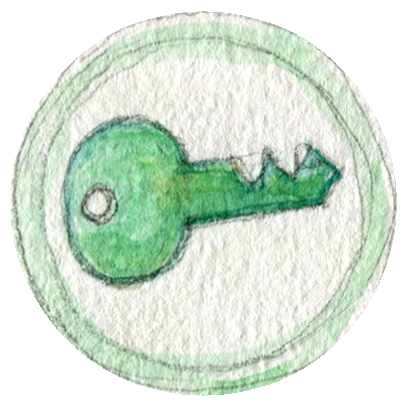Critical data studies (Kenya)

This introduction is thought in the context of Kenya
Data are a powerful weapon for fighting environmental problems and its consequences for individuals but more so for communities. They can tell governments which programs and policies are working, and which aren’t. They can identify who is lacking access to crucial services such as water, transport, education and internet connections. And they can even be used as an input by businesses to create new sources of economic value. The sustainable development goal SDG2, “End hunger, achieve food security and improved nutrition and promote sustainable agriculture” recognizes the interlinkages among supporting sustainable agriculture, empowering small farmers, promoting gender equality, ending rural poverty, ensuring healthy lifestyles, tackling climate change, and other issues addressed within the set of 17 Sustainable Development Goals in the Post-2015 Development Agenda.
But data themselves won’t help lift people out of poverty. It’s the people using them that generate insights that can turn into action to improve development outcomes.
Information and Communication Technologies (ICT) are being used across the world to generate efficiency gains for farmers. This has led to an information and data explosion with an associated boom in new applications, tools, actors, business models, and entire industries. Agri-food systems are being transformed.
Beyond the technological developments, data for and from farmers has become a growth area, driving expectations and investments in big data (but also small data), blockchain technology, precision agriculture, farmer profiling and e-extension. Investing in data-driven agriculture is expected to increase agricultural production and productivity, help adapt to or mitigate the effects of climate change, bring about more economic and efficient use of natural resources, reduce risk and improve resilience in farming, and make agri-food market chains much more efficient. Ultimately, it will contribute to worldwide food and nutrition security.
Smallholders, in particular, have much to gain from data – small improvements in their operations are likely to provide larger gains at the household level, proportionally, and, if the improvements are widely adopted, the whole agricultural sector in many countries, that depend on smallholder agri-food systems, can be transformed.
However, for smallholders to benefit from data-driven agriculture, tools and applications need to be designed for their specific situations and capacities; they – and the organizations that support them – need to grow their capacities to become smart data users and managers; measures are needed to ensure that farmer-generated data is not exploited or misused; and smallholders, usually the least powerful parts of a value chain, must grasp every opportunity to be included in the collective data flows within agri-food systems.
Based on data there are questions that can be answered much quicker. Such questions can be:
- Where does our food come from?
- Can we manage risks on our farm and take control measures against droughts or pests?
- Are we able to predict problems such as floods or low yields?
- Can we make informed decisions on what to grow, what treatment to apply, when to plant, treat or harvest?
Technologies today allow us to build services to answer these questions but data only offers these opportunities when it is usable. For this reason, we are going to devote the first unit to understand what is data and what does it mean ‘to be usable’, namely open.
Reference for this text: Digital and Data-Driven Agriculture: Harnessing the Power of Data for Smallholders (2018). Ajit Maru, Dan Berne, Jeremy De Beer, Peter Ballantyne, Valeria Pesce, Stephen Kalyesubula, Nicolene Fourie, Chris Addison, Anneliza Collett, Juanita Chaves. Published 01 MAY 2018, available from https://doi.org/10.7490/f1000research.1115402.1, the material is CC-BY-SA)
 Visit our podcast series with international experts
Visit our podcast series with international experts
 You can download the booklet by clicking on the DOI badge
You can download the booklet by clicking on the DOI badge
If you are downloading this module, we would be very interested in knowing how are you using it and if we can contact you later to see how the resources have worked for you. If you agree, can you please fill in this brief form with your contact info? If you don’t want, that is fine, you can download them anyway. In any case, thank you for your interest in our project.
 Go to the open data for empowerment (OD4E) workshop
Go to the open data for empowerment (OD4E) workshop
Learning Outcomes
- Understanding the basics of open data
- Understanding the key principles of open data
- Understanding the basics of Open Science
- Understanding data ethics
- Understanding the concepts of data agency and sovereignty
- Developing ideas to innovate using open data
The big wins of Open Data for agriculture and nutrition

Recommended Readings
- Producing, using, innovating: How 50x2030 is closing the agricultural data gap https://www.50x2030.org/sites/default/files/resources/documents/2020-12/An%20Introduction%20to%20the%2050x2030%20Initiative_10_DEC_2020_EDIT_FINAL_0.pdf

Key Complementary Resources
- Johnson, J. A. (2014) ‘From open data to information justice’, Ethics and Information Technology, vol. 16, no. 4, pp. 263–274. https://link.springer.com/article/10.1007/s10676-014-9351-8
- Baack, S. (2015) ‘Datafication and empowerment: how the open data movement re-articulates notions of democracy, participation, and journalism’, Big Data and Society, vol. 2, no. 2, pp. 1–11. https://journals.sagepub.com/doi/10.1177/2053951715594634
- Arzberger, P., et al., (2004) ‘Promoting access to public research data for scientific, economic, and social development’, Data Science Journal, vol. 3 (November), pp. 135–152. https://www.rug.nl/research/portal/publications/promoting-access-to-public-research-data-for-scientific-economic-and-social-development(baeac76c-ba55-4a05-aed4-73d92f8ef41b)/export.html
- Bezjak, S., Clyburne-Sherin, A., Conzett, P., Fernandes, P. L., Görögh, E., Helbig, K., ... & Ross-Hellauer, T. (2018). The open science training handbook https://www.fosteropenscience.eu/content/open-science-training-handbook
- Davies, T., Walker, S. B., Rubinstein, M., & Perini, F. (2019). The state of open data: Histories and horizons (p. 592). African Minds. https://stateofopendata.od4d.net/
- Gurin, J., Bonina, C., & Verhulst, S. (2019) Open Data Stakeholders - Private Sector. In T. Davies, S. Walker, M. Rubinstein, & F. Perini (Eds.), The State of Open Data: Histories and Horizons. Cape Town and Ottawa: African Minds and International Development Research Centre. Print version https://zenodo.org/record/2677777